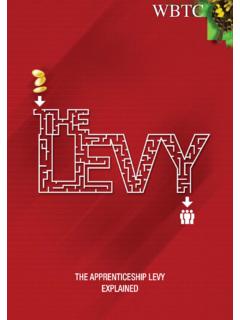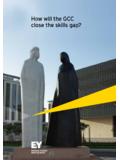Transcription of Human rights declarations Why are human rights …
1 3 Freedom to have privacy in the family, home or with personal correspondence. Freedom of association, expression, assembly (gathering ingroups) and movement. The right to seek and enjoy asylum (a safe home). The right to a nationality. Freedom of thought, conscience and religion. The right to vote and take part in government. The right to fair working conditions. The right to adequate food, shelter, clothing and social security. The right to health. The right toeducation. The right toproperty. The right toparticipate incultural life. The right todevelopment. Freedom from torture and cruel, inhuman or degrading treatment or punishment. Freedom from arbitrary arrest or detention. The right to a fair the declaration was created, most states agreed to it. However,some countries did not sign the declaration . At the time, South Africawas dominated by white people who did not want equal rights forblack people and so did not sign.
2 Saudi Arabia also opposed theDeclaration for religious reasons. One of the Articles (18) allowshumans the freedom to change and practise the religion of theirchoice. Laws in Saudi Arabia mean that the practise of Christianity isforbidden and the right to change your religion from Islam to another2 Why are Human rights important? Human rights are important in the relationships that exist betweenindividuals and the government that has power over them. Thegovernment exercises power over its people. However, Human rightsmean that this power is limited. States have to look after the basicneeds of the people and protect some of their freedoms. Some ofthe most important features of Human rights are the following: They are for everyone. They are internationally guaranteed. They are protected by law. They focus on the dignity of the Human being. They protect individuals and groups.
3 They cannot be taken rights declarationsSome basic Human rights have been written down and agreed to bymany states. The most famous text is the Universal declaration ofHuman rights (UDHR)which the UN General Assembly approved on10 December 1948. International Human rights Day is nowcelebrated on 10 December every year. The statement of principles inthe declaration has had a great influence all over the world, althoughgovernments are not forced by law to obey them. However, manylawyers would argue that because of the way the international worldworks, Human rights have become legally binding and thatgovernments now do have to obey some of the of the Human rights and freedoms listed in the UniversalDeclaration of Human rights and in other treaties (often calledcovenants, conventions or guidelines) include: The right to life. Freedom from discrimination.
4 The right for everyone to be treated equally by the a Bill to an Act of ParliamentThe process of taking a Bill to an Act of Parliament is as follows: First Reading This is the formal announcement of the Billand all its clauses by the Speaker (see page 31). The Speakeralso fixes the date for the Second Reading. Second Reading This is the stage when MPs debate thegeneral principles of a Bill. Some modifications to the Bill canbe discussed before a vote is taken. This is a crucial stage inthe passage of a Bill. Division This is when MPs vote on the aims of the Bill. If aBill does not receive a majority of votes, it can be thrown outat this stage. Committee Stage This is when MPs debate the finer can propose and agree amendments to improve the Bill. Report Stage This is when the final amended Bill is draftedand the findings of the Committee are reported back toParliament.
5 At the end of the Report Stage, a final Bill is draftedtaking all the proposed amendments into consideration. Third Reading This is when MPs have the opportunity todiscuss and vote on the final Bill. A final vote is taken and thewhole procedure is repeated in the House of Lords. Royal Assent A Bill becomes law. The Royal Assent has not been refused since does Parliament do?Parliament in the UK actually consists of the Queen, the House of Lordsand the House of Commons. All three combine to carry out the work ofParliament, although when people talk about Parliament they reallymean the House of Commons. Parliament has the following roles: It debates current affairs and makes laws. It examines the work of the Government on behalf of thepeople. They might do this by questioning or debating withthe Government. It controls the finance, that is, the House of Commons givespermission for the Government to collect taxes and it decideshow the money should be spent.
6 It protects the interests and rights of individuals. We electMembers of Parliament to represent an area. These areas areknown as constituencies(see page 40). It examines new proposals made by the European Union (seeChapter 7). Westminster, where we find Parliament in London, is often usedinstead of is the difference between Parliament and Government?You find the Government inside Parliament. The Government is likethe management of the country that makes the big decisions, but these decisions have to be approved by Parliament. TheGovernment consists of approximately 100 members of the politicalparty which has the majority of seats in the House of Commons. Itprepares new policies and does Government function in Britain?Ministers and civil servants (the executive) usually prepare newpolicies. The policy is then presented to Parliament (the legislature)as a Billwhich is a written document.
7 The judiciary might be used ifthe policy is not put into part of No did you notunderstand?6061 How old do you have to be to work?Children aged 14 orover can be employedin light work under 14 yearsof age can only begiven very light worksuch as paper roundsthat are supervised bya parent. If you areunder school leavingage, you cannot workbefore 7 am or after 7 pm, and you shouldnot work for morethan two hours on aschool day. What are apprenticeships?Modern apprenticeships or traineeships are a form of training forpeople who wish to follow careers such as being a technician,accountant, junior manager or craftsman. You receive some pay (atleast 40 per week, although the minimum wage does not alwaysapply to apprenticeships) whilst you are should the terms and conditions tell you?Terms and conditions should tell you about how you are going to betrained, your pay, the date you began to work and your workinghours.
8 It should also contain details about sick pay and pensions,information about the company s disciplinary procedures and theamount of notice you need to give if you wish to leave. If you are atall concerned about your terms and conditions, or about equalopportunities in your job, you should visit the local Citizens AdviceBureau or your careers office at Employment and moneyEmploymentPeople who make their living by working for someone else or acompany (known as an employer) are called employeesbecausethey are in employment. Those who make their living by providinggoods and services without working for an employer are known asself-employed. If people lose their jobs and are unable to find paidwork, they are known as and employees have rights protected by law. Since 1994,both part-time and full-time employees have the same rights include: Employees are protected by disability,race and sexdiscrimination laws.
9 Employees have to be given notice if they are asked to leaveonce they have worked for more than a month. After twomonths, employees should receive the terms and conditionsof their jobs in writing. Employees are entitled to redundancy payif they are maderedundant and have worked for the employer for two yearsor more. Employees are able to claim forunfair dismissalif they haveworked for an employer for at least a year and feel that theyhave been unfairly sacked. All employees aged 18 or over are entitled to receive at leastthe minimum wagewhich is per hour ( foremployees aged 22 years and over). An employer must make sure that the workplace is safeas theemployer has a legal responsibility to follow all safety procedures. All employees over the age of 16 have the right to at least fourweeks paid holidaya year as long as they have worked for atleast 13 it or are policemen getting younger?
10 91nationalismin Britain, where people express their patriotism(loyalty)about being British(or English or Scottish, etc). Being British oftenimplies that you share a common culturewith the population ofBritain. In other words, people feel that they are included in acountry s , not everyone in Britain is patriotic, and some people thinkthat nationalism is quite a dangerous thing. Yet, nationalism has manymeanings, not all of them negative. For example, it can just be thebelief that a nation should be independent and have its owngovernment. If you are a member of a nationalist party or pressuregroup, you probably believe that national unity and national identityshould take priority over membership of any other group. Other people see themselves as members of certain can be geographical (eg your village, your town or yourcounty), political (eg a pressure group), economic (financial), religiousor social (eg a drama society).













